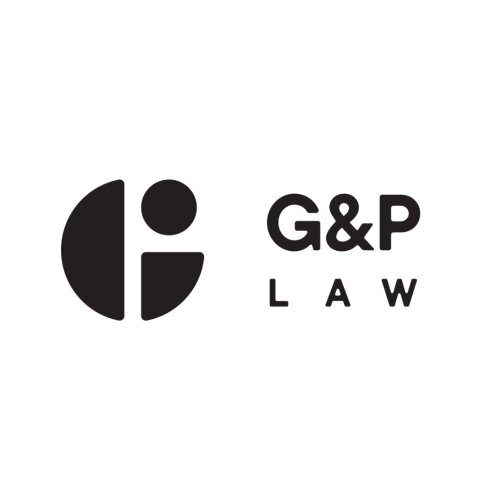Best Debt Capital Markets Lawyers in Bulgaria
Share your needs with us, get contacted by law firms.
Free. Takes 2 min.
Or refine your search by selecting a city:
List of the best lawyers in Bulgaria
About Debt Capital Markets Law in Bulgaria
Debt Capital Markets (DCM) form a crucial part of Bulgaria's financial sector. These markets enable companies, financial institutions, and even government bodies to raise funds by issuing debt securities, such as bonds or notes, directly to investors. Debt Capital Markets offer an alternative financing route outside of traditional bank loans and play an essential role in fueling economic development, supporting infrastructure projects, and enhancing corporate liquidity. In Bulgaria, DCM activities are regulated to ensure market transparency, stability, and investor protection in line with both national and European Union requirements.
Why You May Need a Lawyer
Legal guidance in Debt Capital Markets is vital due to the complexity and regulatory requirements involved in structuring, issuing, and trading debt instruments. Common situations where people may need legal assistance include:
- Preparing and executing a corporate bond issuance
- Ensuring compliance with the Financial Supervision Commission regulations
- Drafting or reviewing bond prospectuses and offering documentation
- Advising on cross-border issuance and EU regulatory alignment
- Conducting legal due diligence for investors or issuers
- Negotiating terms with underwriters, trustees, or agents
- Advising on secondary market trading or restructuring of existing debt
- Responding to regulatory investigations or compliance audits
- Addressing investor rights and dispute resolution
Having a lawyer specialized in Debt Capital Markets ensures that your transactions are legally sound, compliant, and align with best market practices.
Local Laws Overview
Debt Capital Markets in Bulgaria operate under a framework shaped by national laws and European Union directives. Key legal aspects include:
- Public Offering of Securities Act: This law governs the issuance, offering, and listing of debt securities such as corporate and municipal bonds on Bulgarian regulated markets.
- Financial Supervision Commission (FSC) Rules: The FSC is the primary regulatory authority. Its regulations detail issuer requirements, disclosure rules, investor protection mandates, prospectus approval, and ongoing reporting duties.
- EU Prospectus Regulation: Bulgaria, as an EU member, follows this regulation, which sets standards for prospectus content, approval procedures, and cross-border offerings within the EU single market.
- Secondary Market Rules: The Bulgarian Stock Exchange (BSE) has its own rules for the trading and admission of debt securities, including ongoing obligations for issuers and trading participants.
- MiFID II and MAR: The Markets in Financial Instruments Directive II and the Market Abuse Regulation impose additional requirements regarding transparency, trading, and prevention of insider dealing and market manipulation.
- Bankruptcy and Insolvency Laws: These laws regulate creditor rights and processes in the event of issuer insolvency, which is especially relevant for bondholders.
Navigating this regulatory environment requires both general legal knowledge and sector-specific expertise.
Frequently Asked Questions
What are Debt Capital Markets?
Debt Capital Markets refer to financial markets where entities raise funds through the issuance of debt securities, such as bonds or notes, sold to investors.
Who regulates Debt Capital Markets in Bulgaria?
The Financial Supervision Commission (FSC) is the main regulatory body overseeing Debt Capital Markets in Bulgaria.
Do I need approval to issue bonds publicly in Bulgaria?
Yes, public offerings of bonds require a prospectus approved by the FSC before listing or offering to the public.
What is a prospectus and why is it important?
A prospectus is a formal legal document providing details about the bond issue, the issuer’s financial status, and risk factors. It is mandatory for public offerings to ensure transparency and protect investors.
Can foreign companies issue bonds in Bulgaria?
Yes, foreign companies can issue bonds in Bulgaria, but they must comply with local regulations and may need to align with EU requirements as well.
Are there different rules for private placements?
Yes, private placements (offers to a limited number of professional investors) involve less stringent disclosure requirements than public offerings, but still require compliance with certain regulatory and notification standards.
What ongoing obligations do bond issuers have?
Bond issuers must provide regular financial reports, disclose significant events, fulfill payment commitments, and follow all BSE rules if the bonds are listed.
How can investors enforce their rights in case of issuer default?
Investors may pursue claims through courts or rely on an appointed bond trustee who acts on their behalf according to Bulgarian law and bond documentation.
What are the main risks involved in Debt Capital Markets?
Risks include credit risk (issuer default), market risk (interest rate changes), liquidity risk (difficulty selling bonds), and regulatory changes.
How can a lawyer assist with bond issuance?
A lawyer ensures that all documents and processes meet legal requirements, advises on structuring, assists with regulatory filings, negotiates terms, and helps resolve disputes.
Additional Resources
If you seek more information or assistance, the following resources may be helpful:
- Financial Supervision Commission (FSC): The main authority for securities regulation and market oversight in Bulgaria
- Bulgarian Stock Exchange (BSE): The regulated marketplace for trading and listing corporate and public sector bonds
- Bulgarian National Bank (BNB): Oversight for certain government securities and macroprudential regulation
- Bulgarian Association of Licensed Investment Intermediaries: An industry body providing guidance and resources for capital market participants
- European Securities and Markets Authority (ESMA): Offers guidance on EU-wide capital markets regulations applicable to Bulgaria
Next Steps
If you require legal advice or assistance with Debt Capital Markets in Bulgaria, consider the following steps:
- Identify your objectives and gather relevant information about your situation or planned transaction
- Consult with a Bulgarian law firm or lawyer who specialized in capital markets law
- Prepare questions regarding regulatory requirements, documentation, and potential risks
- Discuss the timeline, costs, and legal processes involved with your chosen legal advisor
- Ensure continuous communication with your lawyer throughout the transaction or project lifecycle
Professional legal support is highly recommended to ensure compliance, protect your interests, and facilitate a successful outcome in Bulgaria's Debt Capital Markets.
Lawzana helps you find the best lawyers and law firms in Bulgaria through a curated and pre-screened list of qualified legal professionals. Our platform offers rankings and detailed profiles of attorneys and law firms, allowing you to compare based on practice areas, including Debt Capital Markets, experience, and client feedback.
Each profile includes a description of the firm's areas of practice, client reviews, team members and partners, year of establishment, spoken languages, office locations, contact information, social media presence, and any published articles or resources. Most firms on our platform speak English and are experienced in both local and international legal matters.
Get a quote from top-rated law firms in Bulgaria — quickly, securely, and without unnecessary hassle.
Disclaimer:
The information provided on this page is for general informational purposes only and does not constitute legal advice. While we strive to ensure the accuracy and relevance of the content, legal information may change over time, and interpretations of the law can vary. You should always consult with a qualified legal professional for advice specific to your situation.
We disclaim all liability for actions taken or not taken based on the content of this page. If you believe any information is incorrect or outdated, please contact us, and we will review and update it where appropriate.
Browse debt capital markets law firms by city in Bulgaria
Refine your search by selecting a city.















